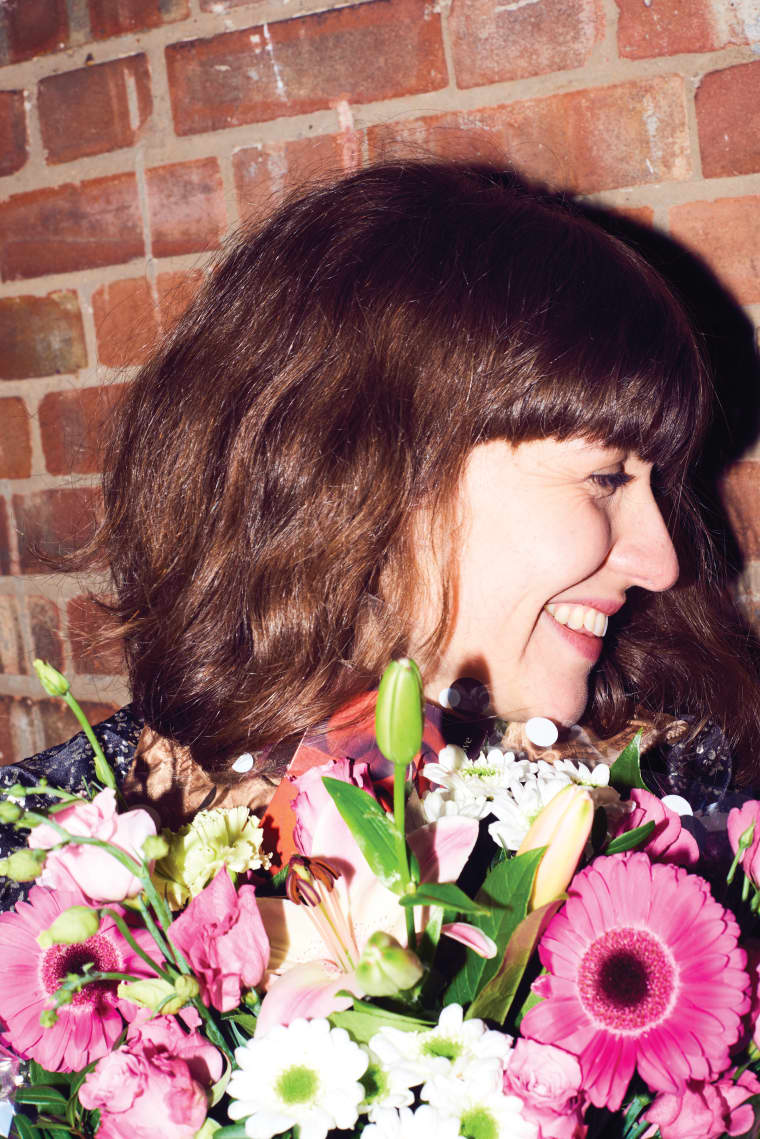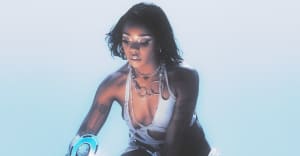How Jessy Lanza’s Love Songs Minimize Life’s Daily Dread
In this week’s GEN F, a small town composer makes peace with her weirdness.


"Do you like Limmy?” Jessy Lanza asks, referring to the bleak Scottish humorist known for online skits about mental health and human behavior. Lanza has just finished a DJ set of lively dance music on London radio station NTS and is holed up in a nearby cafe. “I find watching him therapeutic,” she says. “There’s one skit where he’s sitting with all of these little Limmys around him, and they’re basically telling him, ‘Everything’s shit, your best years are behind you.’ He’s tripping out on the banal, and that resonates with me so much. I’m always thinking of ways to alleviate waking up every day and feeling a deep sense of dread.”
Three years after Hyperdub released her debut album, Pull My Hair Back, the Canadian producer and vocalist is readying its follow-up, Oh No. As a classically trained jazz musician who inherited synthesizers from her late father, Lanza’s accustomed to hours of practice yielding results, and she describes the new record as a series of “happy accidents” in experimenting with South African house loops, husky R&B harmonies, and pulsing hardware. Lanza made Oh No in Hamilton, Ontario, the Rust Belt city where she grew up and now lives with her partner and co-producer, Jeremy Greenspan, of the electronic pop duo Junior Boys. She doesn’t know many other musicians in town, but she sees that as a virtue. Compared to larger Canadian cities, “Hamilton is less about people trying to get somewhere else,” she says. “There’s a sincerity in that.” On especially cold days, she strolls through Jackson Square, a mall that’s halfway between her home and studio, and makes field recordings of the shuffling din.

Oh No sounds confident, especially compared to Lanza’s debut, thanks to a fresh perspective on her voice. As a child, she took singing lessons that taught her to emulate a “Disney princess” style, which is apparent in her early material’s runs and flourishes. Over the past three years, while dealing with her daily dread as best as possible, she’s worked hard to undo that decorative habit. “I have conversations with Jeremy where I say, ‘Ugh, my voice sounds like shit,’” she says, throwing her hands up in faux exasperation. “But he always pulls this face at me and says, ‘You have a weird voice. Just go for it.’” For reassurance, Lanza listened to fellow odd vocalists like the R&B powerhouse Patrice Rushen and Yellow Magic Orchestra synth-pop affiliate Miharu Koshi—especially the latter’s 1983 album, Tutu. Now, on songs like “It Means I Love You,” Lanza has a cleaner, more conversational vocal style that nicely complements her buoyant, sample-stitched productions.
Between solo albums, a number of collaborations also encouraged her to strip down her sound. In 2015, she lent insistent vocals to the Latin freestyle-inflected pop of “Calling Card” by N.Y.C. house producer Morgan Geist’s new project The Galleria. Later that summer, on a 12-inch with DJ Spinn and Taso of Chicago’s Teklife crew called “You Never Show Your Love,” she helped distill the mania of footwork into a low-end love song. “My ideal sound scenario would be that the bass would be really big, and my voice would be high, thin, and weird to counteract it,” she says today. “Making music makes me anxious, but I need it.”


After the coffee shop, Lanza heads off to prepare for tonight’s live performance in a converted train station. When I arrive at the East London venue later on, she’s up on stage and her gear table is swathed in sparkling organza. “Damn, I nearly forgot!” she whispers before she starts, clicking a glowing pink-and-green aroma diffuser into life. Then she sets a rough-edged beat in motion, and live drummer Tori Tizzard joins in. When you look into my eyes, boy, know it means I love you, Lanza sings to the crowd, playful and direct. A pretty footwork melody skitters across the walls and then, in the quiet, she sings it again, this time a cappella. The air seems to stop moving. For a moment, she’s shaken all the little Jessys off her shoulders.
